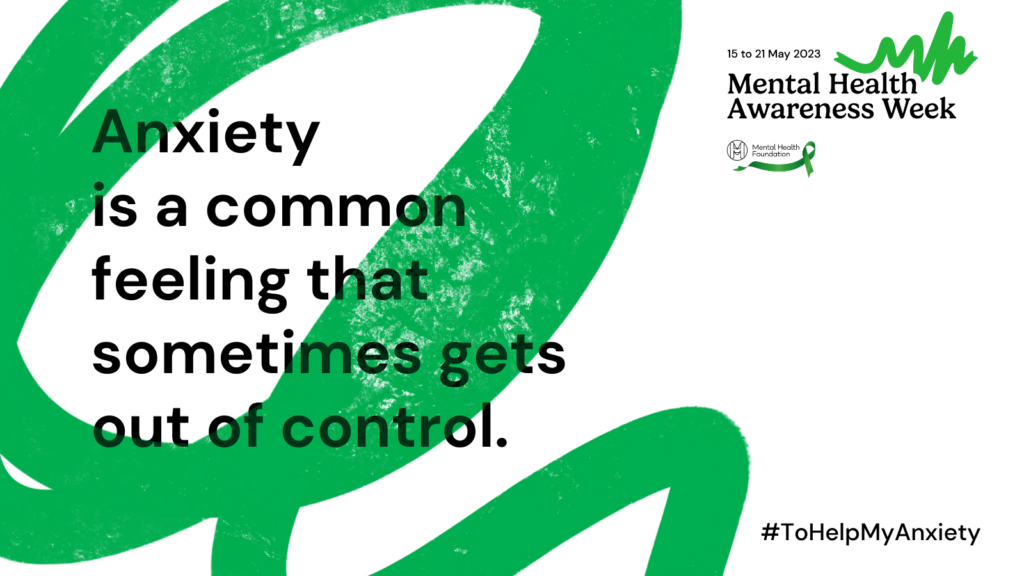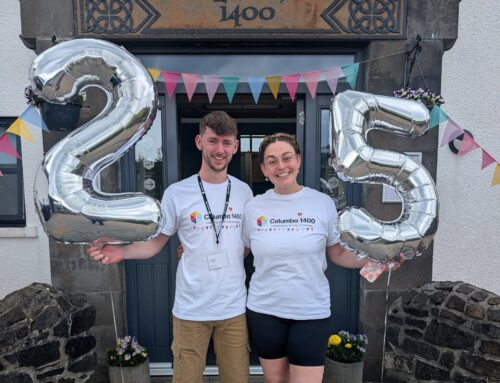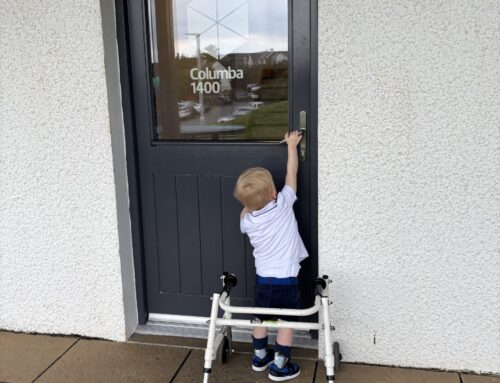Our team of facilitators are committed to continuous professional development to ensure they deliver the best experience for the young people we work alongside. To tie in with Mental Health Awareness Week (15-21 May), they are focusing on mental health this month. In this blog, our facilitator Heather talks about anxiety – why it happens, how it manifests and how to cope with it.
What is anxiety?
Anxiety is one of the most common mental health problems in Scotland and can show itself in a number of different ways. It’s something that we all experience at one time or another.
Anxiety is when we feel worried, afraid, or tense about things. It’s a completely natural human response when we feel we might be under threat.
A whole host of things can lead to us feeling anxious, including exam pressures, relationships, getting a job or losing one and worries about money or housing.

What does anxiety look and feel like?
Anxiety can present itself in many different ways, some that you might not even realise. It can affect sleep, appetite, and the ability to concentrate. It can also make you feel sick, too hot or too cold, make you shiver or even feel faint. If the feeling of anxiety goes on for a long time or becomes so overwhelming mentally and physically, you may experience a panic attack.
Panic attacks tend to come on quite quickly and usually last anywhere between five to 20 minutes. Some people may experience panic attacks at random and without warning, or they may have specific triggers – for instance they may always come in the night time before bed.
People often describe panic attacks as feeling like they are going to black out or even feel like they are going to have a heart attack. (In Iron Man 3, Iron Man has a panic attack that is so overwhelming to him that he believes he’s been poisoned by an enemy!). During a panic attack you may experience feeling faint, a racing heartbeat, feeling sick, chest pains or even struggling to breathe.
How to cope with anxiety
All of the information above may seem a bit daunting, however, there are a lot of organisations and tools out there to support people with anxiety and make dealing with it a bit easier. Below are three support services that may help you or someone you support with anxiety. The Mental Health Foundation also shares lots of tips here.
Shout – the UK’s first free, confidential, 24/7 text support service. It’s a place to go if you’re struggling to cope and need mental health support. Text 85258.
Daylight – a personalized self-help program with specific guidance based on your particular problematic thoughts, behaviours, and responses to worry and anxiety.
NHS24 – this service is there to provide urgent care advice and mental health support day or night. Call 111.
Mental Health Awareness week
There are a number of different ways to get involved with this year’s Mental Health Awareness Week. The Mental Health Foundation is encouraging everyone to share their stories to get the conversation around anxiety going, with the hashtag #ToHelpMyAnxiety.
They will be posting blogs, films, and other content over the week. On Thursday 18 May they are encouraging everyone to take part in Wear It Green Day to raise further awareness and support mental health.





